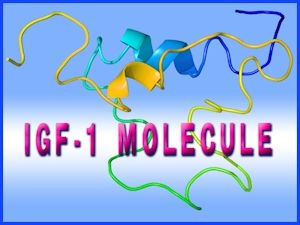Introduction
Testosterone deficiency syndrome (TDS), also known as hypogonadism, is a clinical condition characterized by low levels of testosterone in men, leading to a variety of symptoms including decreased libido, erectile dysfunction, fatigue, and mood disturbances. In the United States, TDS affects a significant portion of the male population, with prevalence increasing with age. Understanding the genetic underpinnings of this condition is crucial for developing targeted therapies and improving patient outcomes. This article delves into a recent genome-wide association study (GWAS) that explores the genetic basis of TDS in American males, offering new insights into its etiology and potential treatment avenues.
The Scope of the Study
The GWAS in question involved a large cohort of American men, both with and without TDS, to identify genetic variants associated with the condition. By analyzing the entire genome, researchers aimed to pinpoint specific loci that contribute to the development of TDS. This approach not only enhances our understanding of the genetic architecture of TDS but also highlights potential genetic markers for early detection and personalized treatment strategies.
Key Findings
The study identified several genetic variants significantly associated with TDS. Notably, polymorphisms in genes involved in the hypothalamic-pituitary-gonadal (HPG) axis, such as the luteinizing hormone receptor (LHR) and the androgen receptor (AR), were found to be strongly linked to testosterone levels. These findings suggest that disruptions in the HPG axis, a critical regulator of testosterone production, play a pivotal role in the pathogenesis of TDS.
Additionally, the GWAS revealed novel associations with genes related to metabolic pathways, indicating a possible link between TDS and metabolic health. Variants in genes associated with insulin signaling and lipid metabolism were found to be more prevalent in men with TDS, suggesting that metabolic factors may contribute to the development of the condition.
Implications for Clinical Practice
The identification of genetic markers associated with TDS has significant implications for clinical practice. Genetic testing could become a valuable tool for identifying individuals at risk of developing TDS, allowing for earlier intervention and management. Moreover, understanding the genetic basis of TDS can inform the development of targeted therapies that address the underlying genetic causes, potentially improving treatment efficacy and patient outcomes.
Challenges and Future Directions
Despite the promising findings, the study also highlights several challenges in the field of genetic research on TDS. The complexity of the genetic architecture of TDS, coupled with the influence of environmental and lifestyle factors, necessitates further research to fully elucidate the condition's etiology. Future studies should aim to replicate these findings in diverse populations and explore the interaction between genetic and environmental factors in the development of TDS.
Moreover, the translation of genetic research into clinical practice requires overcoming barriers such as the cost and accessibility of genetic testing, as well as the need for comprehensive guidelines on the use of genetic information in the management of TDS.
Conclusion
The genome-wide association study on testosterone deficiency syndrome in American males represents a significant step forward in our understanding of the genetic basis of this condition. By identifying key genetic variants associated with TDS, the study opens new avenues for early detection, personalized treatment, and improved patient outcomes. As research in this field continues to evolve, it holds the promise of transforming the management of TDS and enhancing the quality of life for affected men across the United States.
Contact Us For A Fast And Professional Response

- Understanding Testosterone Deficiency: Symptoms, Diagnosis, and Treatment for American Men [Last Updated On: March 1st, 2025] [Originally Added On: March 1st, 2025]
- Testosterone Deficiency Impact on Muscle Mass in American Men: Diagnosis and Treatment [Last Updated On: March 17th, 2025] [Originally Added On: March 17th, 2025]
- Environmental Toxins Linked to Testosterone Deficiency in American Males [Last Updated On: March 17th, 2025] [Originally Added On: March 17th, 2025]
- Alcohol's Impact on Testosterone and TDS in American Males: A Comprehensive Analysis [Last Updated On: March 18th, 2025] [Originally Added On: March 18th, 2025]
- Testosterone Deficiency Syndrome: Symptoms, Diagnosis, and Management Strategies for American Men [Last Updated On: March 18th, 2025] [Originally Added On: March 18th, 2025]
- Testosterone Deficiency Syndrome: Impact on Energy and Treatment Options for American Men [Last Updated On: March 18th, 2025] [Originally Added On: March 18th, 2025]
- Stress-Induced Testosterone Deficiency in American Males: Causes, Effects, and Management [Last Updated On: March 19th, 2025] [Originally Added On: March 19th, 2025]
- Smoking's Impact on Testosterone Deficiency in American Males: Mechanisms and Mitigation [Last Updated On: March 20th, 2025] [Originally Added On: March 20th, 2025]
- Testosterone Deficiency Syndrome: Understanding and Managing with Hormone Therapy [Last Updated On: March 20th, 2025] [Originally Added On: March 20th, 2025]
- Testosterone Deficiency in Men: Symptoms, Prostate Health, and Treatment Options [Last Updated On: March 20th, 2025] [Originally Added On: March 20th, 2025]
- Testosterone Deficiency in American Men: Impacts on Mood and Treatment Options [Last Updated On: March 20th, 2025] [Originally Added On: March 20th, 2025]
- Weight Training Benefits for Men with Testosterone Deficiency Syndrome [Last Updated On: March 21st, 2025] [Originally Added On: March 21st, 2025]
- Chronic Illness Impact on Testosterone Levels in American Males: Management Strategies [Last Updated On: March 22nd, 2025] [Originally Added On: March 22nd, 2025]
- Testosterone Check-ups Crucial for American Males to Combat Deficiency Syndrome [Last Updated On: March 22nd, 2025] [Originally Added On: March 22nd, 2025]
- Testosterone Deficiency and Sleep Apnea: A Bidirectional Health Challenge for American Males [Last Updated On: March 22nd, 2025] [Originally Added On: March 22nd, 2025]
- Vitamin D's Role in Managing Testosterone Deficiency in American Males [Last Updated On: March 23rd, 2025] [Originally Added On: March 23rd, 2025]
- Testosterone Deficiency and Joint Health: Insights for American Males [Last Updated On: March 23rd, 2025] [Originally Added On: March 23rd, 2025]
- Magnesium's Role in Managing Testosterone Deficiency Syndrome in American Males [Last Updated On: March 23rd, 2025] [Originally Added On: March 23rd, 2025]
- Testosterone Deficiency Syndrome and Immune Function in American Men: A Comprehensive Overview [Last Updated On: March 23rd, 2025] [Originally Added On: March 23rd, 2025]
- Testosterone Deficiency Impacts Body Composition in American Males: Muscle, Fat, Bone [Last Updated On: March 24th, 2025] [Originally Added On: March 24th, 2025]
- Testosterone Deficiency Syndrome: Impacts on Skin Health and Management Strategies for American Men [Last Updated On: March 24th, 2025] [Originally Added On: March 24th, 2025]
- Soy Consumption and Testosterone Levels in American Males with TDS: A Complex Relationship [Last Updated On: March 24th, 2025] [Originally Added On: March 24th, 2025]
- Testosterone Deficiency Syndrome: Impacts and Management in American Male Athletes [Last Updated On: March 24th, 2025] [Originally Added On: March 24th, 2025]
- Shift Work's Impact on Testosterone Levels and Deficiency Syndrome in American Males [Last Updated On: March 24th, 2025] [Originally Added On: March 24th, 2025]
- Zinc's Vital Role in Combating Testosterone Deficiency in American Men [Last Updated On: March 24th, 2025] [Originally Added On: March 24th, 2025]
- Testosterone Deficiency Linked to Dental Health Issues in American Males [Last Updated On: March 24th, 2025] [Originally Added On: March 24th, 2025]
- Testosterone Deficiency in American Men: Impacts on Vision and Eye Health [Last Updated On: March 24th, 2025] [Originally Added On: March 24th, 2025]
- Testosterone Deficiency Syndrome: Impact on Cognitive Function in American Men [Last Updated On: March 25th, 2025] [Originally Added On: March 25th, 2025]
- Plasticizers' Impact on Testosterone Levels and TDS in American Men: A Review [Last Updated On: March 25th, 2025] [Originally Added On: March 25th, 2025]
- Testosterone Deficiency and Depression: A Critical Link in American Men's Health [Last Updated On: March 25th, 2025] [Originally Added On: March 25th, 2025]
- Omega-3 Fatty Acids: A Natural Approach to Managing Testosterone Deficiency in Men [Last Updated On: March 25th, 2025] [Originally Added On: March 25th, 2025]
- Testosterone Deficiency and Hair Loss: Understanding and Managing in American Men [Last Updated On: March 25th, 2025] [Originally Added On: March 25th, 2025]
- Pesticide Exposure Linked to Low Testosterone in American Men: Health Risks and Mitigation [Last Updated On: March 25th, 2025] [Originally Added On: March 25th, 2025]
- Air Pollution's Impact on Testosterone Levels in American Males: A Growing Concern [Last Updated On: March 26th, 2025] [Originally Added On: March 26th, 2025]
- Testosterone Deficiency Syndrome and Its Link to Hearing Loss in American Males [Last Updated On: March 26th, 2025] [Originally Added On: March 26th, 2025]
- Testosterone Deficiency and Anemia: Impacts and Management for American Males [Last Updated On: March 26th, 2025] [Originally Added On: March 26th, 2025]
- Testosterone Deficiency in American Males: Impacts on Memory and Cognitive Health [Last Updated On: March 26th, 2025] [Originally Added On: March 26th, 2025]
- Fenugreek: A Natural Solution for Testosterone Deficiency Syndrome in American Males [Last Updated On: March 26th, 2025] [Originally Added On: March 26th, 2025]
- Blue Light Exposure Linked to Testosterone Deficiency in American Men: Mitigation Strategies [Last Updated On: March 26th, 2025] [Originally Added On: March 26th, 2025]
- Chronic Stress and Testosterone Deficiency Syndrome in American Males: Impacts and Management [Last Updated On: March 26th, 2025] [Originally Added On: March 26th, 2025]
- Diet Soda Consumption Linked to Lower Testosterone Levels in American Men [Last Updated On: March 26th, 2025] [Originally Added On: March 26th, 2025]
- Testosterone Deficiency and Thyroid Dysfunction: Interconnected Health Issues in American Males [Last Updated On: March 26th, 2025] [Originally Added On: March 26th, 2025]
- Boron Supplementation: A Natural Approach to Managing Testosterone Deficiency in American Males [Last Updated On: March 27th, 2025] [Originally Added On: March 27th, 2025]
- Ashwagandha's Potential in Boosting Testosterone for American Males with TDS [Last Updated On: March 27th, 2025] [Originally Added On: March 27th, 2025]
- Testosterone Deficiency in American Men: Impacts, Diagnosis, and Treatment Options [Last Updated On: March 27th, 2025] [Originally Added On: March 27th, 2025]
- High-Fat Diets and Testosterone Levels: Impacts and Dietary Recommendations for American Males [Last Updated On: March 27th, 2025] [Originally Added On: March 27th, 2025]
- Testosterone Deficiency and Liver Health in U.S. Males: Impacts and Management Strategies [Last Updated On: March 28th, 2025] [Originally Added On: March 28th, 2025]
- TDS and Gallbladder Disease: Insights, Risks, and Management Strategies for American Males [Last Updated On: March 28th, 2025] [Originally Added On: March 28th, 2025]
- Testosterone Deficiency Syndrome: Impacts on Kidney Function and Management Strategies [Last Updated On: March 29th, 2025] [Originally Added On: March 29th, 2025]
- Testosterone Deficiency Syndrome: Impacts on Pancreatic Health and Cancer Risk in Men [Last Updated On: March 30th, 2025] [Originally Added On: March 30th, 2025]
- Heavy Metal Exposure and Its Impact on Testosterone Levels in American Men [Last Updated On: March 30th, 2025] [Originally Added On: March 30th, 2025]
- EMF Exposure and Testosterone Levels: Implications for TDS in American Males [Last Updated On: March 31st, 2025] [Originally Added On: March 31st, 2025]
- Tribulus Terrestris: A Promising Herbal Aid for Testosterone Deficiency in American Males [Last Updated On: April 1st, 2025] [Originally Added On: April 1st, 2025]
- Testosterone Deficiency Syndrome: Adrenal Health's Role and Management Strategies [Last Updated On: April 2nd, 2025] [Originally Added On: April 2nd, 2025]
- Testosterone Deficiency Syndrome: Impact, Diagnosis, and Management in American Men [Last Updated On: April 3rd, 2025] [Originally Added On: April 3rd, 2025]
- Noise Pollution Linked to Testosterone Deficiency in American Males: A Growing Concern [Last Updated On: April 5th, 2025] [Originally Added On: April 5th, 2025]
- Fluoride Exposure and Its Impact on Testosterone Levels in American Men [Last Updated On: April 6th, 2025] [Originally Added On: April 6th, 2025]
- Testosterone Deficiency Syndrome: Impacts on Hypothalamic Function and Management Strategies [Last Updated On: April 8th, 2025] [Originally Added On: April 8th, 2025]
- Testosterone Deficiency Syndrome: Impacts, Diagnosis, and Treatment in American Males [Last Updated On: April 10th, 2025] [Originally Added On: April 10th, 2025]
- DHEA Supplementation: A Promising Treatment for Testosterone Deficiency Syndrome in American Males [Last Updated On: April 10th, 2025] [Originally Added On: April 10th, 2025]
- BPA Exposure Linked to Lower Testosterone and TDS in American Men: A Review [Last Updated On: April 10th, 2025] [Originally Added On: April 10th, 2025]
- Ginseng's Potential in Managing Testosterone Deficiency Syndrome: A Comprehensive Overview [Last Updated On: April 10th, 2025] [Originally Added On: April 10th, 2025]
- Testosterone Deficiency and Pineal Gland: Insights for American Males with TDS [Last Updated On: April 10th, 2025] [Originally Added On: April 10th, 2025]
- Testosterone Deficiency Syndrome: Impacts on Urinary Health and Management Strategies [Last Updated On: April 10th, 2025] [Originally Added On: April 10th, 2025]
- Phthalates' Impact on Testosterone and TDS in American Males: An Emerging Concern [Last Updated On: April 11th, 2025] [Originally Added On: April 11th, 2025]
- Testosterone Deficiency Syndrome: Impacts on Gastrointestinal Health in American Males [Last Updated On: April 13th, 2025] [Originally Added On: April 13th, 2025]
- Testosterone Deficiency in American Males: Impacts on Respiratory Health and Management Strategies [Last Updated On: April 13th, 2025] [Originally Added On: April 13th, 2025]
- PFCs Linked to Testosterone Deficiency in American Males: Environmental Health Concerns [Last Updated On: April 14th, 2025] [Originally Added On: April 14th, 2025]
- Phytoestrogens' Impact on Testosterone Levels in American Men with Hypogonadism [Last Updated On: April 17th, 2025] [Originally Added On: April 17th, 2025]
- Testosterone Deficiency Syndrome: Impacts and Management in American Males [Last Updated On: April 17th, 2025] [Originally Added On: April 17th, 2025]
- Cordyceps: A Natural Approach to Managing Testosterone Deficiency Syndrome in Men [Last Updated On: April 17th, 2025] [Originally Added On: April 17th, 2025]
- Testosterone Deficiency Syndrome: Impacts on Metabolic Health and Management Strategies [Last Updated On: April 18th, 2025] [Originally Added On: April 18th, 2025]
- Triclosan Exposure Linked to Testosterone Decline in American Men: TDS Risks [Last Updated On: April 18th, 2025] [Originally Added On: April 18th, 2025]
- Parabens' Role in Testosterone Deficiency Syndrome Among American Males Explored [Last Updated On: April 19th, 2025] [Originally Added On: April 19th, 2025]
- Shilajit: A Natural Remedy for Testosterone Deficiency in American Males [Last Updated On: April 19th, 2025] [Originally Added On: April 19th, 2025]
- Testosterone Deficiency Syndrome: Impact of Endocrine Disruptors on American Males [Last Updated On: April 19th, 2025] [Originally Added On: April 19th, 2025]
- Testosterone Deficiency and Autoimmune Disorders: A Critical Link for American Males [Last Updated On: April 19th, 2025] [Originally Added On: April 19th, 2025]
- Testosterone Deficiency: Impacts on Neurological Health in American Males [Last Updated On: April 19th, 2025] [Originally Added On: April 19th, 2025]
- Testosterone Deficiency: Impacts on Skin, Hair, and Psychological Health in American Men [Last Updated On: April 21st, 2025] [Originally Added On: April 21st, 2025]
- Organophosphate Pesticides Linked to Testosterone Deficiency in American Males [Last Updated On: April 21st, 2025] [Originally Added On: April 21st, 2025]
















